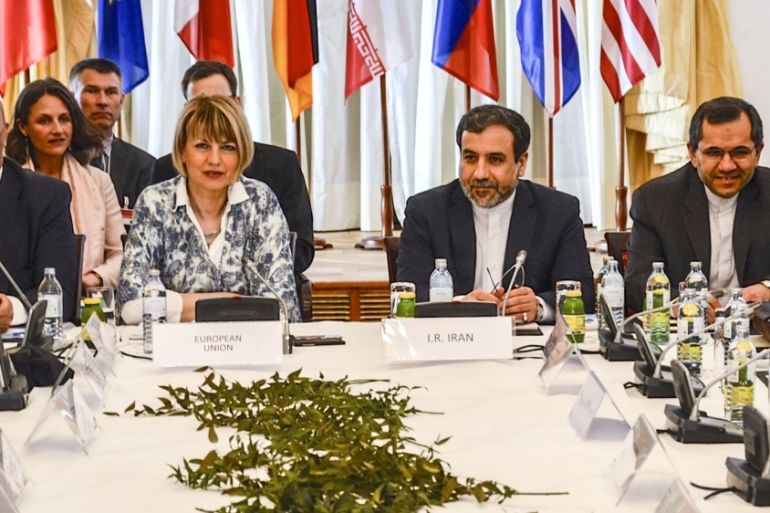Probe launched into hacker attacks on nuclear talks
Swiss and Austrian authorities investigate possible spying in luxury hotels hosting talks, as Israel denies involvement.

Swiss and Austrian authorities have launched investigations into possible cyber attacks on locations where nuclear negotiations between Iran and six world powers have been hosted.
Swiss authorities on Thursday searched a house in Geneva and seized computer material in connection with a possible attack, Switzerland’s attorney-general said.
Austria is also investigating the case, which came to light when Russian computer security company Kaspersky Lab said on Wednesday that a computer virus was used to hack into locations including three luxury hotels that had hosted negotiations between Iran and the other countries.
As well as at the Palais Coburg luxury hotel in Vienna, the talks have been held in Geneva, Lausanne, Montreux and Munich.
An Austrian Interior Ministry spokesman declined to give more details about which locations were being scrutinised.
Israel, a strong critic of the talks between Tehran, the United States, Russia, China, France, Britain and Germany, dismissed as baseless reports that it may have had a connection to the computer virus.
Both Kaspersky and US security company Symantec said the virus shared some programming with previously discovered espionage software called Duqu, which security experts believe was developed by Israelis.
At the headquarters of the International Atomic Energy Agency (IAEA) in Vienna on Thursday, Iran’s ambassador to the UN nuclear agency said he was not surprised by the developments.
Watch: Iran nuclear programme – deal or no deal?
“You know that there are enemies to these talks and they will do whatever they can. So it’s not a surprise to us,” Reza Najafi told reporters.
“We continue to take precautionary measures not to let any details of the discussion go to the public,” he added, speaking on the sidelines of an IAEA board meeting.
“I should say we have been successful in that regard. Of course there are some cases, which … they are just incidents,” Najafi said.
The spying revelations come in the lead-up to a June 30 deadline for a historic agreement on curtailing Iran’s nuclear programme in return for relief from international economic sanctions.
Israel has denounced the negotiations with Iran, saying it doubts any agreement arising from the talks will sufficiently restrain Iran’s atomic programme.